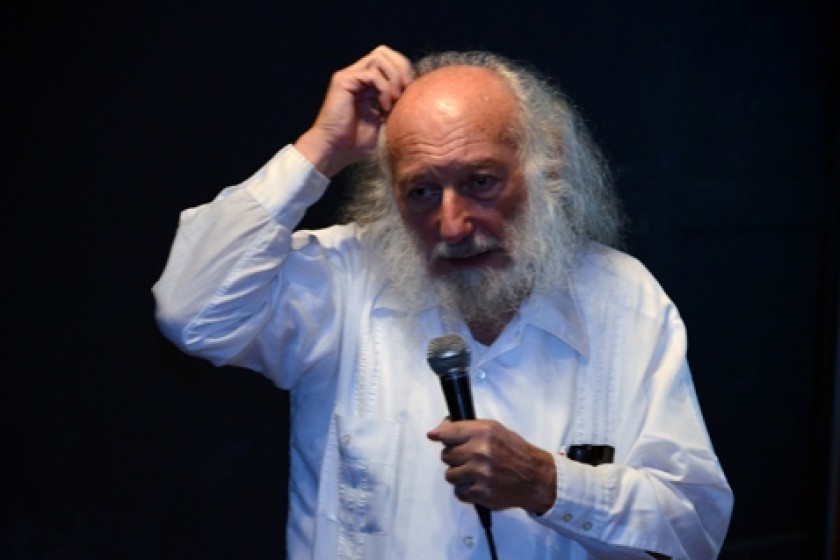
Historian Claude Mutafian: The Old and New Diasporas Have Yet to Reconcile
During a talk held the other day at the Naregatsi Art Union in Yerevan, Sorbonne Professor Claude Mutafian said that relations between the diaspora and Armenia had become further complicated due to the existence of two diasporas – the one created as a result of the 1915 Genocide and the one comprised of those who have left Armenia in the post-independence era.
Mutafian said that the two have yet to reconcile themselves and gave the example of recent clashes between the two in the French city of Nice.
The historian lamented the loss of once culturally significant communities like Aleppo, but was hopeful that the community in Lebanon would survive.
Mutafian said that dialog between the two diasporas was starting, but slowly.
Turning to the situation in Armenia, Mutafian said that the question to be answered was one of survivability.
“Everyone talks about the problem but no one seems to come up with solutions,” he said, adding that he doesn’t blame those leaving Armenia because life is so difficult.
“We travelled to Artsakh for two days. Along the way, we saw villages that were semi-abandoned. We all know what the situation is,” Mutafian said, noting that not being a politician or an economist he too was hard-pressed to offer any remedies.
He said that while Armenia is not a rich country materially, its richness lies in its millennia-old culture that isn’t properly being utilized.
Mutafian condemned the inequitable distribution of wealth in Armenia which favors the rich, adding that better governance would greatly improve the socio-economic situation in the country.
Regarding next year’s 100th anniversary of the 1915 Genocide, Mutafian said that it is imperative that Turkey be made to recognize its crime and that the issue of compensation would come after. But he added that he wasn’t sure if Turkey would indeed officially admit its guilt.
Mutafian said Armenians shouldn’t only dwell on the past but look towards the future and how to spur the continued development of Armenian culture which, in his view, is sorely being overlooked today.
The historian also lamented what he perceives as a disconnect between the church and culture in Armenia today.
He pointed to his much beloved St. Katoghike Church on Abovyan Street in downtown Yerevan that is now overshadowed by a much larger church (St. Anna) and buildings to be used by church leaders, including the catholicos.
“I won’t say what the church did was a crime, but it was the wrong thing to do,” said Mutafian.
When asked what he is involved in today on a cultural level, Mutafian said he recently completed a work, in French, on Armenian culture of the eleventh to fourteenth centuries.
“One doesn’t have to write in Armenian about Armenian culture,” Mutafian explained. “While I know Armenian to a certain degree, my mother tongue is French. I think in French.”
The historian concluded by saying he’d be pleased if the work was translated into Armenian.
Photo: Naregatsi Art Union
 Videos
Videos Photos
Photos




Comments (2)
Write a comment